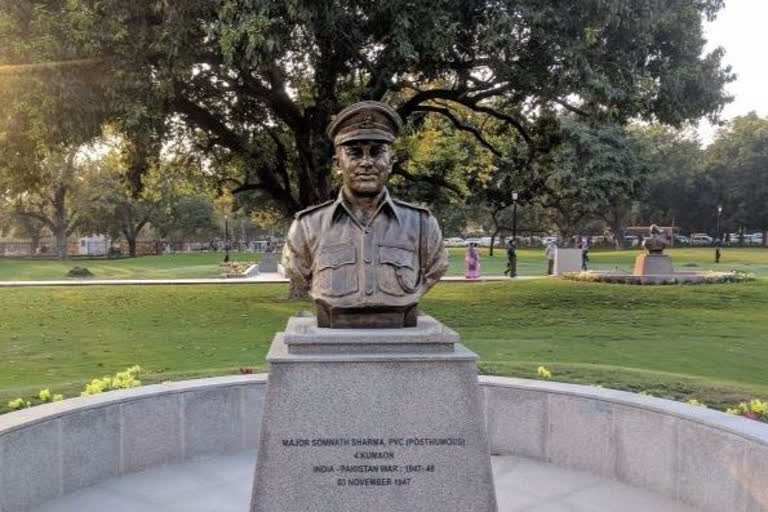Dehradun: The Indian Army on Sunday paid rich tributes to Major Somnath Sharma, India's first recipient of highest gallantry awards Param Vir Chakra, on his 98th birth anniversary. The history of Kashmir could have been different but for the valiant fight given by the Indian army led by Major Somnath Sharma at Budgam in 1947.
Born in Kangra district of Himachal Pradesh, Major Sharma braved a fractured arm and ploughed on to face the enemy fire to foil the attempts of Pakistani raiders to capture the airport. He was a part of the military family where every person in his family like his father, Major General Amar Nath Sharma, his brothers, Lt. General Surender Nath Sharma and General Vishwa Nath Sharma served in the Army.
Sharma completed his schooling from Nanital's Sherwood College and got commissioned into Kumaon Regiment in 1942. He also participated in Arakan operation in the Second World War.
Major Sharma was a part of the Fourth Batallion of the Kumaon Regiment. He was posted in Budgam immediately after independence in 1947. He laid down his life while evicting Pakistani infiltrators and raiders from Jammu and Kashmir.
READ: Not satisfied with Mahavir Chakra awarded to Col Santosh Babu, says father
Despite having an injury on his left hand, Major Somnath Sharma fought till his last breath and also boosted the morale of the jawans to keep fighting. Major Sharma’s team was under heavy fire and bombardment as a group of tribal men surrounded them on all sides. Sharma's team sustained heavy casualties. They were heavily outnumbered but did not give up.
Before losing his life in a motor shell explosion on a pile of ammunition near him, the Major transmitted a message to the headquarters informing that the infiltrators were only 50 yards away. Sharma's company continued fighting till the Indian Army's team reached for their help.
Programs are organised in Dharamshala and Kangra on this day every year to pay tribute to Major Somnath Sharma. The Indian Army also organises programs for the soldiers killed in Budgam war in their cantonments.



